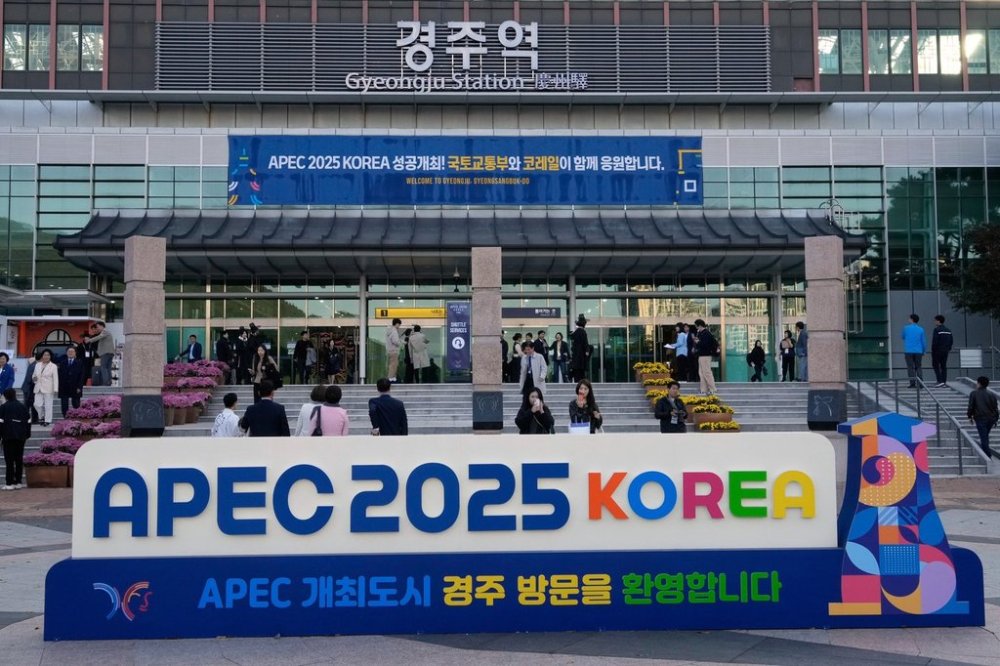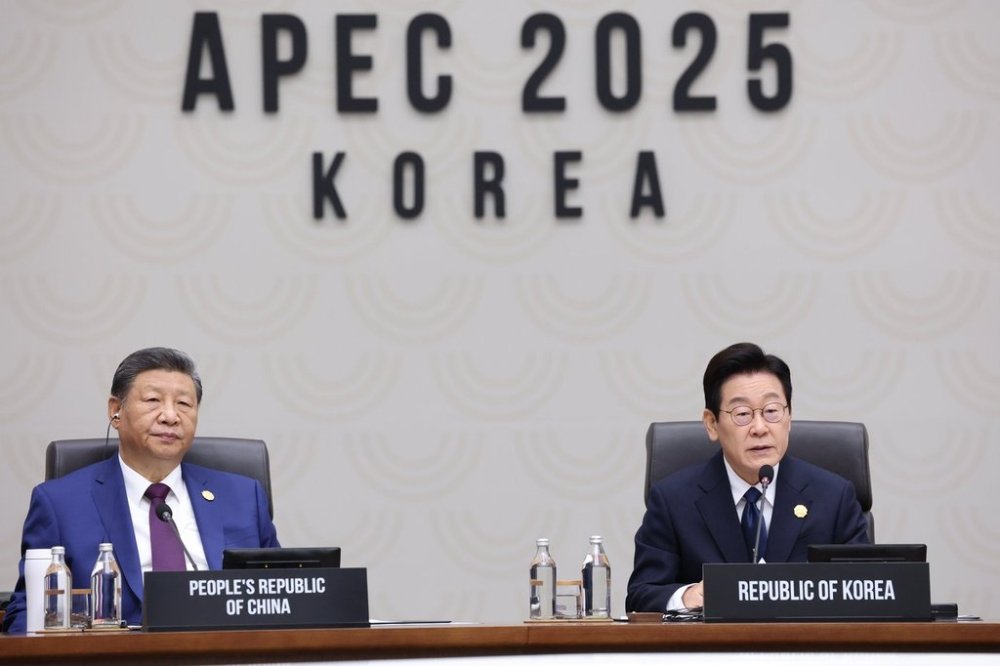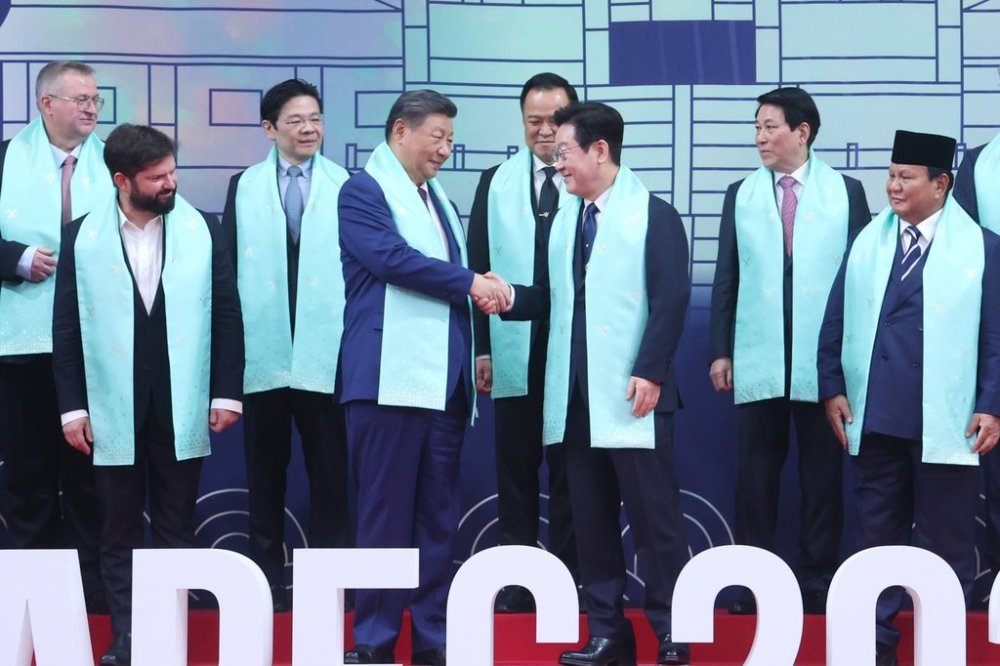South Korea calls for greater Chinese efforts to bring North Korea back to talks
Advertisement
Read this article for free:
or
Already have an account? Log in here »
To continue reading, please subscribe:
Monthly Digital Subscription
$0 for the first 4 weeks*
- Enjoy unlimited reading on winnipegfreepress.com
- Read the E-Edition, our digital replica newspaper
- Access News Break, our award-winning app
- Play interactive puzzles
*No charge for 4 weeks then price increases to the regular rate of $19.95 plus GST every four weeks. Offer available to new and qualified returning subscribers only. Cancel any time.
Monthly Digital Subscription
$4.99/week*
- Enjoy unlimited reading on winnipegfreepress.com
- Read the E-Edition, our digital replica newspaper
- Access News Break, our award-winning app
- Play interactive puzzles
*Billed as $19.95 plus GST every four weeks. Cancel any time.
To continue reading, please subscribe:
Add Free Press access to your Brandon Sun subscription for only an additional
$1 for the first 4 weeks*
*Your next subscription payment will increase by $1.00 and you will be charged $16.99 plus GST for four weeks. After four weeks, your payment will increase to $23.99 plus GST every four weeks.
Read unlimited articles for free today:
or
Already have an account? Log in here »
GYEONGJU, South Korea (AP) — South Korean President Lee Jae Myung asked Chinese President Xi Jinping to make greater efforts to persuade North Korea to return to talks, as the two leaders on Saturday agreed on a set of steps to expand their economic and other ties.
Their one-on-one meeting came hours after they and other Asia-Pacific leaders wrapped up an annual summit in South Korea with a joint statement pledging stronger economic cooperation. The two-day Asia-Pacific Economic Cooperation forum in the city of Gyeongju took place a day after Xi and U.S. President Donald Trump agreed to dial back earlier steps and de-escalate their trade war.
During his meeting with Lee, Xi called for Seoul to work with Beijing to “practice genuine multilateralism,” according to Chinese state media, as he continued to position Beijing as the defender of the global trade order upended by Trump’s sweeping tariffs.

Xi, Lee discuss North Korea
Chinese state media reports on the Xi-Lee meeting didn’t immediately carry any North Korea-related comments by Xi.
However, Wi Sung-lac, Lee’s national security director, said Lee during the meeting outlined his strategy for achieving denuclearization on the Korean Peninsula and “requested a constructive Chinese role to help realize the resumption of talks with North Korea.”
“Xi replied that he would continue his efforts to help resolve issues involving the Korean Peninsula and promote peace and stability here,” Wi said.
China is North Korea’s traditional ally and economic pipeline, but there are still questions about how much leverage it has on its impoverished neighbor. China has been long suspected of avoiding fully implementing U.N. sanctions on North Korea and sending clandestine aid shipments to help the North stay afloat and continue to serve as a bulwark against U.S. influence on the Korean Peninsula.
The North Korea item in the Lee-Xi meeting drew an irritated response from Pyongyang. North Korean Vice Foreign Minister Pak Myong Ho slammed South Korea for talking about “its daydream” of realizing North Korea’s denuclearization.
Lee, an advocate of reconciliation with North Korea, said earlier Saturday he would take “more active preemptive steps” to lower military tensions with the North, stressing that peace on the Korean Peninsula is essential to prosperity of the Asia-Pacific region.
Lee’s office said South Korea and China also signed several agreements on jointly combating online scams, expanding a bilateral free trade deal and renewing a currency swap deal that expired last month.
Trade, investment ‘vital’ to region’s growth

After two days of talks, APEC leaders vowed greater cooperation to tackle shared challenges in a global economy hit hard by rising protectionism and trade tensions between the United States and China, the world’s two largest economies.
Their joint statement declared that the APEC leaders “acknowledge the global trading system continues to face significant challenge.”
“We reaffirm our shared recognition that robust trade and investment are vital to the growth and prosperity of the Asia-Pacific region,” it says.
Jeonghun Min, a professor at South Korea’s National Diplomatic Academy, said the statement avoided direct language supporting “free and open trade,” which would not have received backing from the United States, but still endorsed economic cooperation and multilateralism at the core of APEC’s mission.
“It wasn’t possible to leave that out entirely,” said Min.
The joint declaration said that APEC members remain committed to the Putrajaya Vision 2040, a 20-year growth vision adopted in 2020 that calls for a trade environment that’s “free, open, fair, non-discriminatory, transparent and predictable.”
APEC leaders discuss AI and population issues
While the summit’s opening session on Friday focused on ways to boost trade and investment, Saturday’s meeting had cooperation in the field of artificial intelligence, demographic challenges and cultural industries on its agenda.

Xi urged Asia-Pacific countries on Saturday to promote the “sound and orderly development” of AI in a way that is mindful of all of humanity’s well-being. He proposed the formation of a new global body called the World Artificial Intelligence Cooperation Organization.
Trump, known for his dismissal of multilateralism, had quickly left South Korea after the agreement with Xi, leaving the Chinese president to steal the limelight at the APEC summit. The U.S. under Trump has stepped back from efforts to regulate AI and would be unlikely to join the group that China has proposed.
APEC leaders also issued a statement Saturday calling for a coordinated approach to the changes brought by AI, which they described as a potential economic catalyst that also poses challenges. Another statement urged cooperation to address declining birth rates, aging populations and accelerated urbanization.
On Friday, Xi told the summit that China would support global free trade and supply chain stability — an apparent effort to position his country as an alternative to Trump’s protectionist policies. In written remarks sent to a CEO summit held in conjunction with the APEC summit, Xi said that “investing in China is investing in the future.”
Established in 1989, APEC champions free and open trade and investment to promote regional economic integration. But the region now faces challenges such as the U.S.-China rivalry, supply chain disruptions, aging populations and the impact of AI on jobs.

